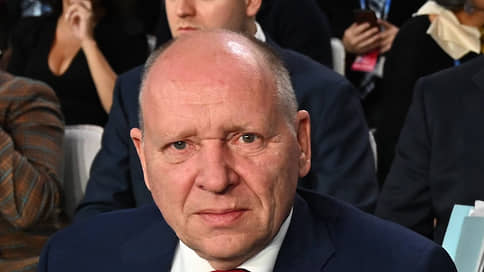The Ministry of Finance proposed a new rate of income tax for the MGK since 2026

The Ministry of Finance decided on how to adapt the Pillar 2 mechanism introduced in the OECR countries since 2024 with the benefit for the Russian budget. The bill prepared by him provides that the tax from the profit of Russian “daughters” of international holdings will pay extra to the level of 15% in Russia, and not in foreign states. Experts note that the proposed mechanism differs from the model rules of the OECD, implemented to combat taxes by groups of companies. The Russian version of Pillar 2 expands the number of potential payers of the corrective tax in the Russian Federation and at the same time creates the risks of its surcharge abroad. In addition, the load on companies that use income tax benefits in the Russian Federation may increase, in particular from an IT sector.
The Ministry of Finance has prepared a draft change to the Tax Code, providing for the introduction of a corrective income tax for Russian participants in international groups of companies (MGK) from January 1, 2026, which are distributed by Pilelar 2. Let us explain: Pillar 2 is part of the OECD tax reform running a minimum rate of income tax for 15% international holdings. The purpose of the mechanism is the fight against offshore schemes. If the company in the country of registration pays income tax below 15%, then the state in which it actually earns (as well as the country where its maternal structure is located) can add the difference to its budget.
We are talking about more or less large companies – with annual revenue of more than € 750 million – and present at least in two countries.
Russia planned to integrate the rules of the OECD into its legislation in 2022, but because of a change in the external situation, it did not. Nevertheless, the Russian authorities decided to introduce such a mechanism partially, rethinking it. For this, declarations of Russian “daughters” of foreign groups of companies (including Russian business, structured through foreign jurisdictions) were analyzed for 2024 in order to find out whether they should have paid tax abroad.
As a result of such an analysis, the Ministry of Finance still saw the need for changes. Let us explain: although the income tax rate in the Russian Federation in 2024 was 20%(now 25%), taking into account the benefits, an effective payment in individual companies may be below 15%. The prepared bill obliges each Russian participant in the MGK instead of the usual rules for paying income tax to apply a special rate of 15%, if the maternal company of this MGK is located on the territory of a foreign state, and the Russian “daughter” according to the Pillar 2 rules should pay extra for the line. The list of jurisdictions to which new norms will be extended will be prepared by the Ministry of Finance.
The payment will be distributed like this: 5% – to the federal budget, and 10% to regional.
According to the Ministry of Finance, in 2027 this can bring 15.8 billion rubles to the federal budget. The department notes that it will not yet be appreciated by the number of companies that will not affect the innovations from January 1, 2026: “Many international companies close subsidiaries and representative offices in the Russian Federation, while other MGKs consider the possibility of returning to the Russian market.” Moreover, the number of payers will vary in each reporting period.
“The suggestions of the Ministry of Finance are not aimed at the full implementation of Pillar 2, but at the collection at the Russian Federation level of the amount of tax, which, according to the Pillar 2 rules, will be paid for paying abroad,” explains Fedor Petrik, head of the Tax Compliance tax practice. Earlier, the B1 partner Marina Belyakova added “ambitions to collect taxes itself as maternal jurisdiction, but due to the external situation they refused it,” and it was decided only to ensure an effective tax rate in Russia at least 15%so that it does not pay off abroad. According to the expert, foreign groups of companies fall under the initiative, as well as those Russian MGKs that « could not or did not want to transfer holdings in the Russian Federation. »
Given the income tax rate of 25%, says Tedo partner Galina Naumenko, few people have less than 15%who has an effective rate in Russia, but the project involves the calculation for each company separately, and not by consolidated in the Russian Federation.
As a result, the payers « will be significantly more. » This approach, adds Marina Belyakova, the simplest, but “deprives the MGR of benefits for income tax, as it does not imply equalization in the group due to the consolidation of the results. In particular, says Alexander Ambraisovskaya, adviser to the Legal IEGAL, amendments, the IT companies will be affected-their effective rate is now less than 15% due to benefits. An additional load, Fedor Petrik notes, will also arise for Russian participants in the MGK that use benefits in the framework of special regulations (areas of advanced development, special investment agreements, agreements on the protection and encouragement of investments).
According to Anna Voronkova’s partner, the mechanism is very different from the model rules of the OECR and, most likely, will not be recognized as “qualified” within the framework of the international system. Then, according to Alexandra Ambrasovskaya, there is a risk that payment in the Russian Federation will not be taken into account when calculating the effective rate of the Russian company and the difference will still have to pay the location of the mother company in the country. As Galina Naumenko adds, situations are also likely when there would be no tax abroad, but it will have to be paid in the Russian Federation.







